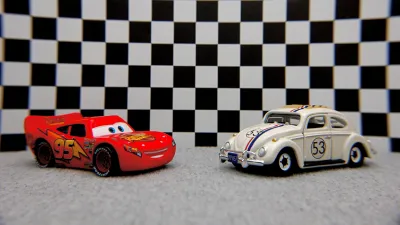A recent article presents the findings of a study examining the question of how humans will assign or cope with blame for collisions caused by self-driving cars. The findings present insight on how humans will interact with technology in the future.

Adam Waytz details the method and findings of research into the reactions of test subjects to self-driving cars: "people’s responses to driving an autonomous car suggests that people are exceedingly willing to grant these cars’ humanlike intelligence, and the more humanlike features the car conveys—when the car possesses a name, voice, and gender—the more people trust it to operate competently, as a human driver would."
The article repeatedly references a morbid juxtaposition behind the dehumanizing aspects of war and the humanizing rituals of test subjects after they experience collisions in self-driving cars. Here's why the comparison matters: "Beyond addressing questions about how we will assign blame to the autonomous nonhumans of tomorrow (insurance companies are surely taking notes), these findings also give insight into the inverse process of dehumanization. Just as the mere addition of a voice and gender leads people to treat the car as humanlike, when we fail to perceive these features in other people, we are more likely to treat them as mindless objects."
FULL STORY: Seeing Human

Analysis: Cybertruck Fatality Rate Far Exceeds That of Ford Pinto
The Tesla Cybertruck was recalled seven times last year.

National Parks Layoffs Will Cause Communities to Lose Billions
Thousands of essential park workers were laid off this week, just before the busy spring break season.

Retro-silient?: America’s First “Eco-burb,” The Woodlands Turns 50
A master-planned community north of Houston offers lessons on green infrastructure and resilient design, but falls short of its founder’s lofty affordability and walkability goals.

Test News Post 1
This is a summary

Analysis: Cybertruck Fatality Rate Far Exceeds That of Ford Pinto
The Tesla Cybertruck was recalled seven times last year.

Test News Headline 46
Test for the image on the front page.
Urban Design for Planners 1: Software Tools
This six-course series explores essential urban design concepts using open source software and equips planners with the tools they need to participate fully in the urban design process.
Planning for Universal Design
Learn the tools for implementing Universal Design in planning regulations.
EMC Planning Group, Inc.
Planetizen
Planetizen
Mpact (formerly Rail~Volution)
Great Falls Development Authority, Inc.
HUDs Office of Policy Development and Research
NYU Wagner Graduate School of Public Service

























